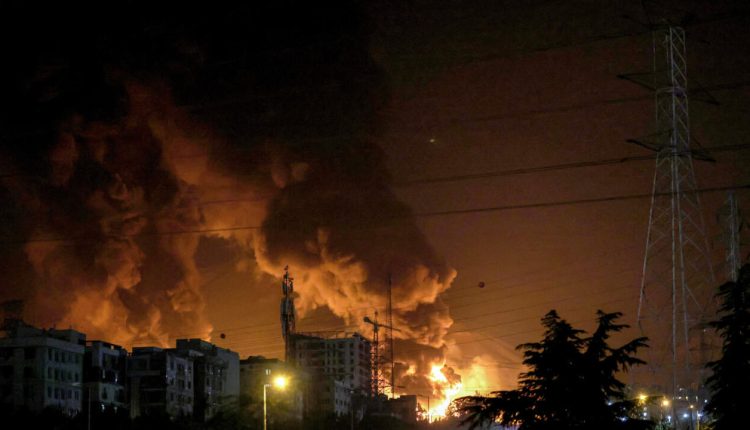Israel, Iran exchange missile strikes on day 9 of escalation
DAMASCUS, Syria (North Press) – On the ninth day of intensifying hostilities between Israel and Iran, both countries exchanged on Saturday missile strikes, marking a dangerous escalation in the ongoing conflict that began on June 13.
Israeli Defense Minister Israel Katz announced that Saeed Izadi, commander of the Islamic Revolutionary Guard Corps’ “Palestine Corps,” was assassinated in a targeted Israeli airstrike on an apartment in the Iranian city of Qom.
Meanwhile, Iran’s semi-official Fars News Agency reported that Israeli missiles targeted the Isfahan nuclear facility. The agency confirmed that no hazardous materials were leaked as a result of the attack.
According to Reuters, the latest round of rocket fire between Tel Aviv and Tehran came shortly after Iran declared it would not engage in nuclear negotiations under threat, even as European nations attempted to keep diplomatic channels open.
Following midnight warnings of incoming missiles from Iran, air raid sirens were activated across central Israel, including Tel Aviv and parts of the West Bank.
Residents reported multiple interceptions over Tel Aviv as Israeli air defense systems engaged the incoming projectiles, with explosions heard across the city.
In response, the Israeli military confirmed launching a new wave of strikes targeting Iran’s missile storage and launch infrastructure. No casualties or injuries were immediately reported from these operations.
Israel’s emergency services released images showing a fire on the roof of a residential high-rise in central Israel, believed to be caused by debris from an intercepted missile.
Israel launched its initial attacks on Iran earlier this month, citing imminent threats posed by Tehran’s nuclear ambitions.
While Iran maintains that its nuclear program is solely for peaceful purposes, it responded with coordinated drone and missile strikes on Israeli territory.
The Human Rights Activists News Agency (HRANA), a U.S.-based organization monitoring Iranian affairs, reported that Israeli airstrikes have resulted in 639 deaths in Iran, including several senior military commanders and nuclear scientists.
In Israel, authorities confirmed that 24 civilians have been killed by Iranian missile strikes since the conflict began.
The latest developments underscore a grave regional crisis with growing international concern over the risk of a broader war.
Although Israel is widely believed to possess nuclear weapons, it maintains a longstanding policy of neither confirming nor denying their existence.

